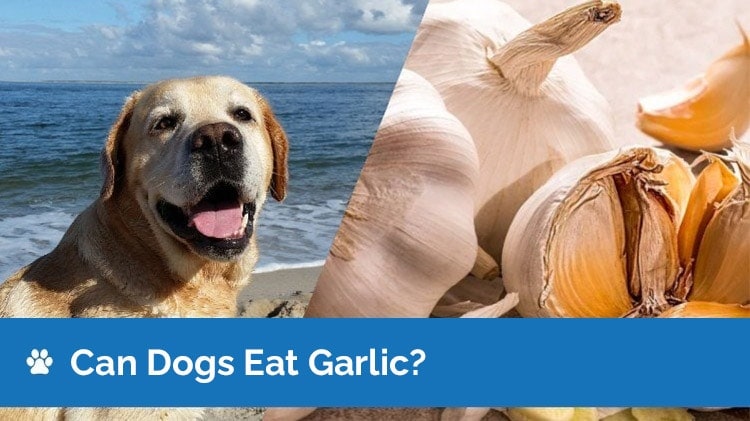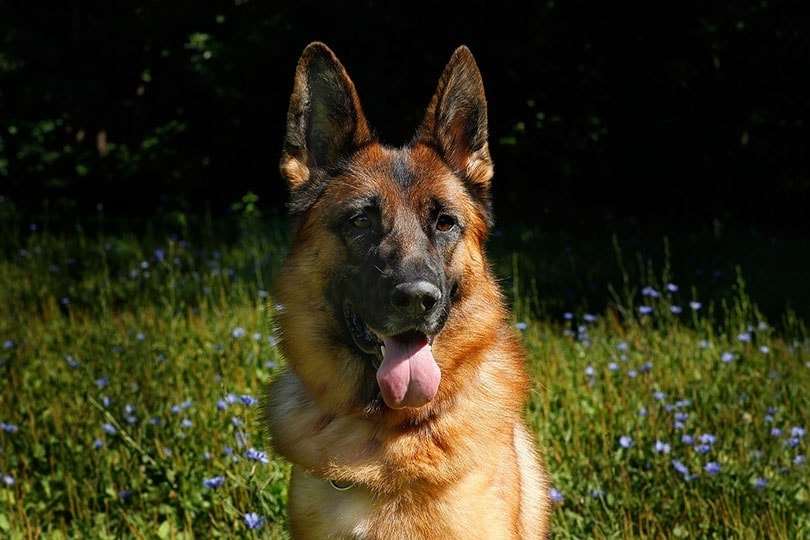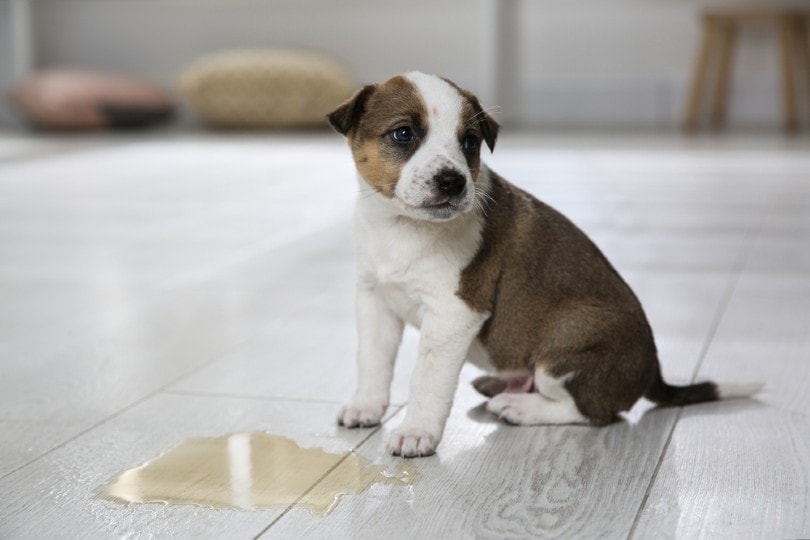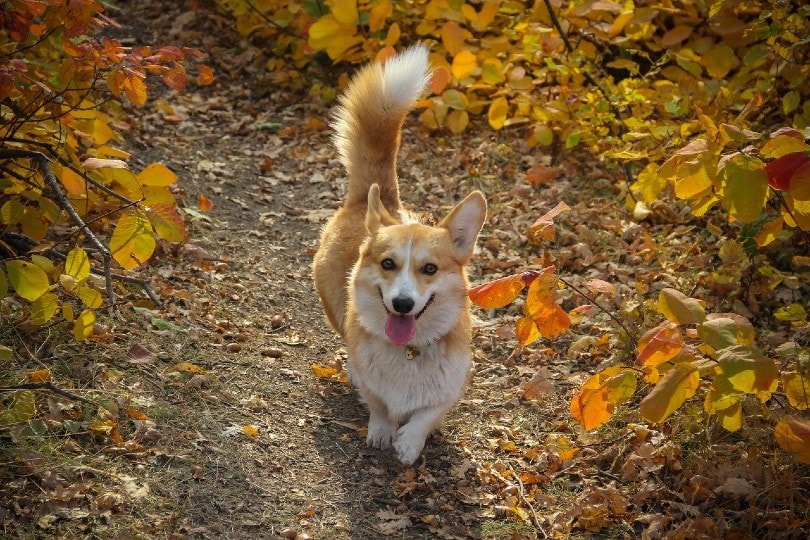If you’re an avid chef, then you probably keep garlic in your kitchen. After all, it just makes everything taste better. It’s only natural to want to offer some to your dog — but you really shouldn’t.
Garlic is toxic to dogs, about five times as toxic as onions, in fact. You shouldn’t give your dog anything with garlic in it, and be sure not to leave any stray cloves lying around, just in case.
For more information on why garlic is so bad for dogs and what to do if your dog has accidentally ingested some, read on.
Is Garlic Safe for Dogs?
The reason dogs can’t eat garlic is that it damages their red blood cells. This can cause them to rupture, which then leaves the dog vulnerable to anemia.
While garlic is toxic to all dogs, it’s worse for some than others. Japanese breeds like Akitas and Shiba Inus are particularly sensitive for some reason.
One thing that makes garlic poisoning especially dangerous is that it can have a delayed onset. Your dog may seem fine for a few days before collapsing, so it’s important to always take garlic ingestion seriously. Talk to a vet immediately if you know your dog has eaten some.
Fortunately, it takes quite a bit of garlic to put a dog in serious danger. Studies have shown that it takes 15 to 30 grams of garlic per kilogram of body weight to cause damage to red blood cells. The average clove of garlic weighs somewhere between 3 and 7 grams, so your dog would really have to eat a large amount to be in serious danger.
That doesn’t mean you should shrug it off if you’ve caught your dog munching on cloves. Call your vet or poison control immediately. However, it does mean that if you’ve accidentally given your dog some food with a little garlic in it, they should be fine.

But I’ve Heard That Garlic Can Keep Fleas and Ticks Away. What Gives?
It’s true: Many natural pest control advocates believe in giving dogs garlic as a flea and tick repellent. This may make it attractive to owners who balk at rubbing pesticides into their dog’s skin.
The idea is that the dog will excrete sulfur through their skin; while this doesn’t kill the parasites, they do tend to find the taste unpleasant.
However, there’s little evidence that this works. There has been only one study performed on garlic as a flea control device so far, and the study wasn’t that compelling. It only consisted of three dogs, and they simply dropped garlic in their pen.
So, you’ll have to rely on anecdotal evidence alone, and then balance that against all the evidence we have that garlic is toxic for dogs. In our opinion, you’re better off going with an, as those all have to undergo rigorous testing to prove both their safety and efficacy.
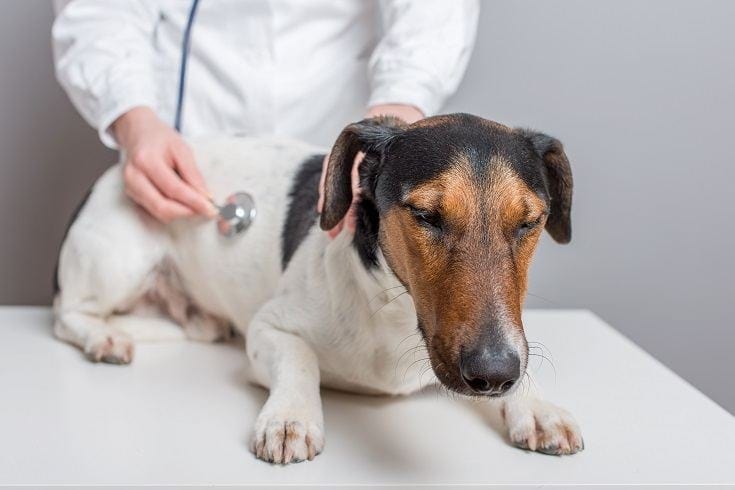
Are There Any Health Benefits to Feeding My Dog Garlic?
There may be, yes. This is still an area of contention among many vets and researchers. While we know that garlic is toxic in large amounts, there hasn’t been much research done on how dogs will respond to it in much smaller doses.
One recent study showed that giving dogs a small amount produced health benefits without any adverse reactions. It should be noted, however, that the dogs used in this study were Beagles, so you still should be cautious if you own an Akita.
Some experts recommend garlic supplements for everything from parasite control to heart and kidney disease. Garlic does have anti-carcinogenic, anti-parasitic, and antiseptic properties, but that doesn’t necessarily mean it’s safe (so does bleach, for example).
If you do decide to give your dog a garlic supplement, go with one from a reputable brand that uses cold-pressed garlic. Look for one that administers a very small dose, such as 1,000 mg or so.
Of course, it (hopefully) goes without saying that you should talk to your vet before starting your dog on any supplement, much less one that could potentially be toxic.
What Should I Do If My Dog Eats Garlic?
The first thing you should do is determine how much they ate and when, if possible. This is vital information that your vet will need to make informed decisions about your dog’s care.
Then, call your vet or poison control. If they feel that your dog is in danger, they’ll likely advise you to take them to an emergency clinic. There, the vets can monitor your pooch for signs of anemia and induce vomiting if necessary.
- Related Read: My Dog Ate Garlic! – Here’s What to Do (Our Vet Answers)
If your vet tells you not to bother bringing your dog in but to monitor them at home instead, here are the symptoms you need to worry about:
- Lethargy
- Nausea (often marked by increased drooling)
- Weakness
- Abdominal pain
- Halitosis
- Vomiting
- Diarrhea
- Pale gums
- Heightened panting
- Red-tinged urine
- Collapse
If you notice any of the above, rush your dog to the nearest emergency vet right away. There’s no antidote for garlic toxicity, so it’s critically important to start treatment for anemia as soon as possible.

How Do I Prevent My Dog From Eating Garlic?
The best way to ensure that your dog doesn’t eat garlic is to not leave it anywhere that they could get to it. That means not having any cloves lying around on the counter or table.
Also, be careful about feeding human foods to your dog. Certain items — like garlic fries — should be clear no-nos, but garlic is hiding in many other foods as well. Remember that low doses add up over time, so don’t assume that a food is safe simply because there’s not much garlic in it.
Teach everyone in your family (especially children) not to feed the dog garlic. It’s probably easiest if you institute a “no human food” policy rather than expecting everyone to analyze labels.
If you’re growing garlic in your garden, be sure to place a fence or other barrier around it to prevent your dog from munching on it as it grows.
Luckily, most pups don’t care for the taste of raw garlic, so you shouldn’t have much to worry about if your food security isn’t the greatest.
So, What’s the Verdict? Can My Dog Eat Garlic?
Garlic is toxic to dogs in large amounts, so it’s likely best if you avoid giving your dog any, just to be safe. Additionally, certain breeds (like Akitas and Shiba Inus) are especially susceptible to garlic poisoning.
However, there’s been pushback in recent years from researchers who claim that garlic can have powerful health benefits if used in small doses. At present, there’s little evidence to support these claims, so we don’t feel that it’s worth the risk.
Ultimately, we feel that any benefits you can find from feeding your dog garlic can be found with less risk from other sources, so we recommend avoiding it if at all possible.
Your dog will just have to make peace with the fact that they’ll never taste your garlic butter shrimp.
Featured Image Credit: Pixabay

